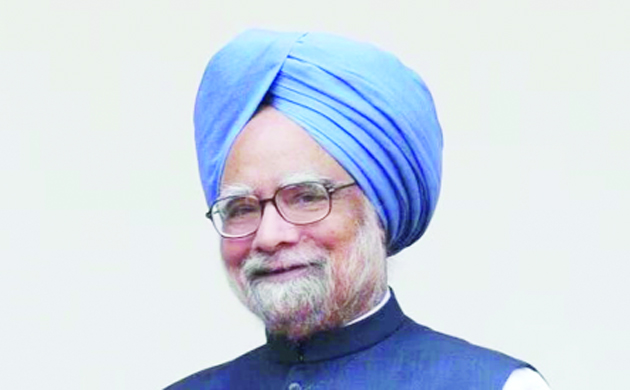Dr. Harmeet Singh Soodan, Dr. Sarabjeet Kaur Sudan
Dr. Manmohan Singh, India’s 14th Prime Minister, is celebrated as a pivotal figure in the country’s economic development. Renowned for his humility, intellect, and leadership, his remarkable journey from humble beginnings to one of India’s most influential personas exemplifies resilience and vision. His impact as an economist and leader has profoundly shaped India’s path towards modernization and integration into the global economy.
Born on September 26, 1932, in Gah, now in Pakistan, Singh encountered early life challenges in a setting with limited resources. Nevertheless, his remarkable academic talent was evident from an early age. After completing his initial education in Punjab, he attended Punjab University in Chandigarh, earning a Bachelor’s degree in Economics in 1952.
Singh’s quest for knowledge led him abroad, where he secured a scholarship to St. John’s College, University of Cambridge, earning a degree in Economics. His experience at Cambridge expanded his understanding of global economic policies and trade intricacies. He continued his academic pursuits at the University of Oxford, receiving a DPhil in Economics from Nuffield College. His doctoral dissertation, titled “India’s Export Performance, 1951-1960: Export Prospects and Policy Implications,” reflected his deep comprehension of India’s economic dilemmas and proposed solutions.
Dr. Singh began his career in academia, serving as a professor at Punjab University and later at the prestigious Delhi School of Economics, where he inspired numerous students with his profound economic insights. However, his exceptional skills caught the attention of policymakers.
In 1971, Singh took on the role of Economic Advisor in the Ministry of Foreign Trade, marking the start of a distinguished public service career. Over the years, he held several significant positions: as Chief Economic Advisor (1972-1976), he provided key guidance on fiscal policies, trade, and foreign investment. As Governor of the Reserve Bank of India (1982-1985), he laid the foundation for monetary stability and financial reforms. His tenure as Deputy Chairman of the Planning Commission (1985-1987) was instrumental in shaping India’s economic landscape and development strategies. These roles underscored his expertise and established him as a trusted economic advisor.
**The Architect of Modern India: Champion of Economic Reforms**
The 1990s marked a transformative period in Indian history. By 1991, India was facing a severe economic crisis, characterized by a dire balance-of-payments situation, dwindling foreign reserves, and soaring fiscal deficits. Recognizing the necessity for reform, Prime Minister P.V. Narasimha Rao appointed Dr. Manmohan Singh as Finance Minister. In this capacity, Singh implemented a series of bold and transformative measures that liberalized the Indian economy. His initiatives included opening up to foreign investment and dismantling barriers to attract global corporations to growth opportunities in India. By abolishing the License-Permit Raj, Singh eliminated decades of bureaucratic constraints on businesses, fostering entrepreneurship and economic freedom. Currency devaluation made Indian exports more competitive internationally, and reduced import tariffs incentivized trade and integration into the global economy. These reforms not only stabilized the economy but also propelled India onto the global stage as a burgeoning economic powerhouse. His historic 1991 Budget Speech, citing Victor Hugo’s words, “No power on Earth can stop an idea whose time has come,” became a landmark moment in Indian political and economic history.
In 2004, Dr. Singh became Prime Minister, leading the United Progressive Alliance (UPA) government. Throughout two successive terms, he provided stable leadership amid rapid economic growth, social reforms, and various challenges. Under Singh’s stewardship, India achieved an average GDP growth rate of around 8%. His policies cultivated an environment conducive to investment and innovation, reinforcing India’s place as one of the world’s fastest-growing economies. Key initiatives such as the Mahatma Gandhi National Rural Employment Guarantee Act (MGNREGA) provided critical support for rural households, ensuring 100 days of wage employment annually. The Right to Information Act empowered citizens with the means to demand transparency and accountability in governance. Singh’s nuclear diplomacy was crucial in negotiating the Indo-US Nuclear Deal, which effectively dismantled decades of isolation and secured India’s energy future, while also enhancing strategic relations with the U.S. His prudent economic management enabled India to navigate the global financial crisis of 2008 with minimal growth disruption. Throughout his career, Singh exemplified humility, often shunning recognition, letting his contributions speak volumes.
As an economist, Dr. Manmohan Singh revolutionized India’s economic policies, transitioning the country from a closed economy to a globally integrated one. His reforms fostered job creation, alleviated poverty, and elevated India’s stature on the world stage. As Prime Minister, he advocated for inclusive growth, ensuring the benefits of economic progress reached all societal segments. His dedication to education, healthcare, and rural development remains a hallmark of his leadership. Singh’s extraordinary journey from a small village in Pakistan to the heights of global leadership serves as a potent inspiration. His legacy is a testament to the power of vision, intellect, and integrity in shaping a nation’s destiny.
Dr. Manmohan Singh epitomizes transformation and progress in Indian politics. His enduring contributions as an economist and statesman have left an immutable impact on India’s growth narrative. Even post-retirement, he continues to inspire countless generations with his wisdom and grace. As India advances, the principles Singh championed—liberalization, privatization, globalization, social inclusion, and ethical governance—remain timeless and significant. His legacy stands as a testament to the extraordinary achievements of visionary leadership, earning him rightful recognition as “The Visionary Leader and Architect of Modern India.”


Leave a Reply